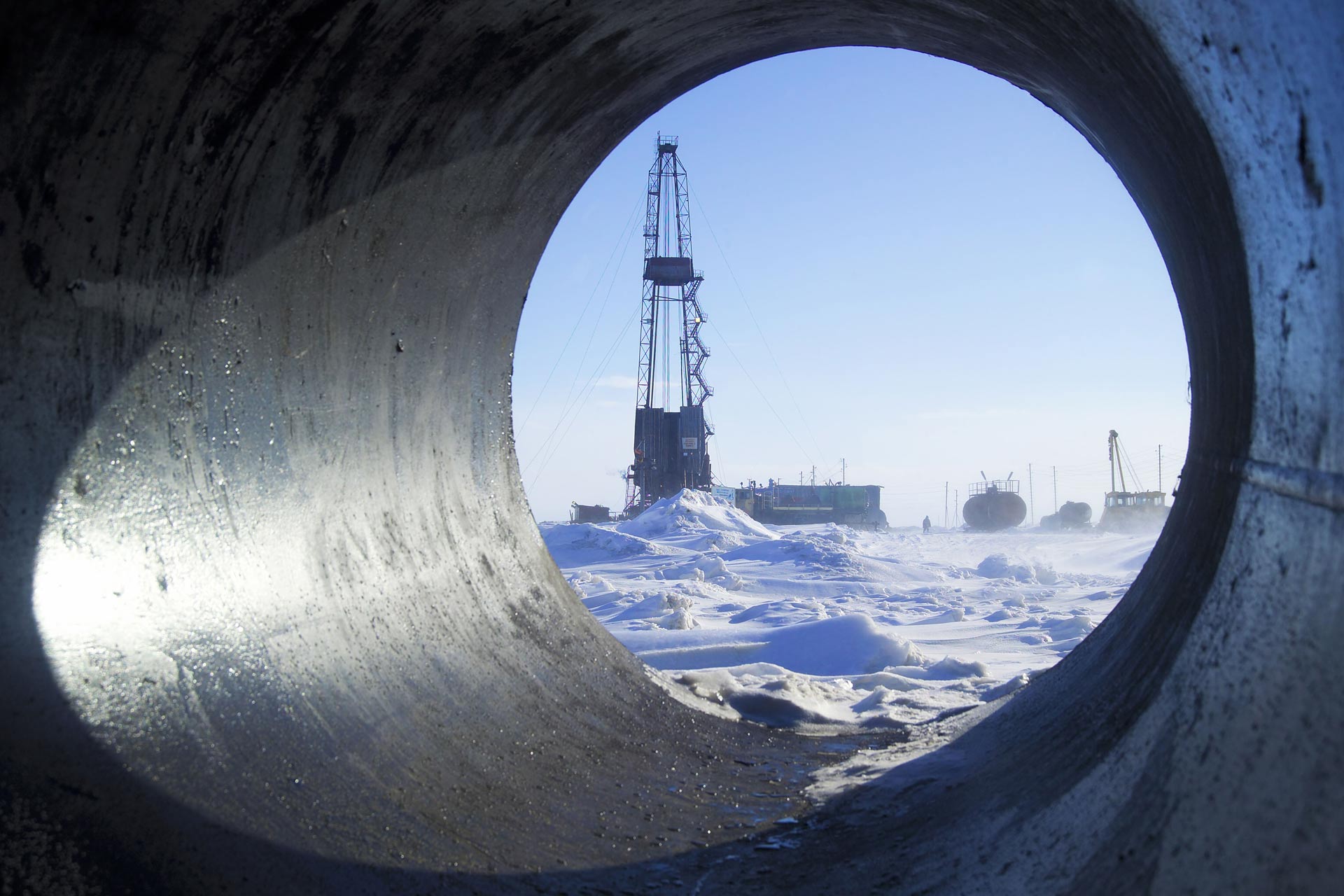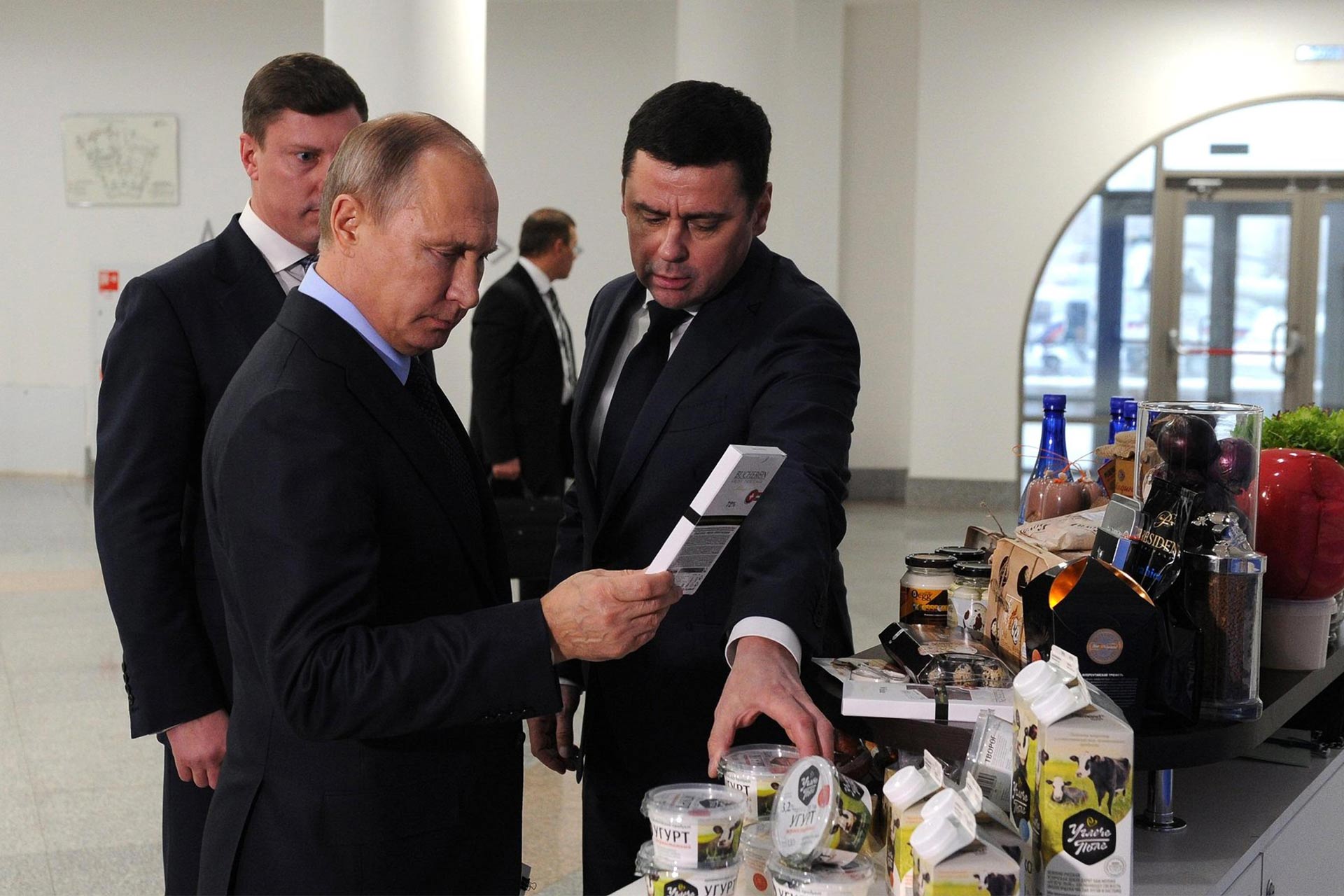Mironov’s official financial declarations have always included rather modest sums. When he became an aide under the Presidential Administration in 2021, he declared an income of 4.4 million rubles (around $59,000). In the four preceding years, he had earned between 2 and 3 million rubles ($33 000 - 40 000) a year. His wife appeared in the declaration in 2019, with an income of 4.2 million rubles ($67,000). (As of 2022, public officials are no longer required to file these declarations.)
But Mironov owned luxury property that seemed out of kilter with his declared salary. In 2014 and 2015, he declared ownership of a 128.5-square-meter apartment in Moscow, which reporters traced to the elite residential complex known as the Golden Keys. Sitting in a verdant area near the Ramenka River, the complex features a mini-zoo with llamas. A similar apartment was listed for sale in 2016 at 60 million rubles (over $900 000).
Despite already having a luxurious residence, Mironov appears to have employed a well-known scheme used by officials to obtain an even larger apartment from the state.
According to court filings, he donated his Golden Keys apartment to the state in 2016, and was leased another, larger apartment in return. Several months later, the court approved a request to recognize the new apartment as Mironov’s property. In his asset declarations starting in 2016, , the 128.5-square-meter apartment had disappeared and was replaced with the larger flat, with an area of 176.3 square meters. Reporters were unable to find information about the location of that property.
Leaked phone book contacts indicate Mironov’s wife is also linked to luxury real estate: she is listed in some places as "Tatyana Mironova Polyanka De Lux" or "Mironova Tatyana Soloslovo" – apparent references to a collection of cottages named "Polyanka de Luxe", that were built for officials in the village of Soloslovo by the Department of Presidential Affairs.
She is also listed as “Tatyana Wardrobe Tishinsky Lane”, a prestigious location in the center of Moscow where some houses have been built on the orders of the administration.
A newcomer in a region normally led by locals, Mironov was seen as remote and uncomfortable in the spotlight. He shied away from public appearances, rarely met with local officials or media, and struggled when speaking in public.
But he also brought an advantage: access to Moscow.
Immediately after Mironov took office, the region received a large budget loan from the Finance Ministry for the first time, local media reported. Investments started pouring in, and the state-controlled energy giant Gazprom, which had reportedly curtailed its investment program in Yaroslavl because the region was in debt, announced an investment of around 3.3 billion rubles ($58.7 million) to gasify the region.
The people of Yaroslavl also saw a lot more of their president. During the first two years of Mironov’s governorship, Putin visited four times, compared to once under the previous governor. That was more visits than any other region received, except Crimea.
On one occasion, Putin publicly addressed the governor by the nickname “Dima,” in an indication of their closeness. (He later switched to using Mironov’s full name in the same conversation after he was apparently unsatisfied with the governor’s answer to one of his questions).

Credit: Screenshot of video by President of Russia
Vladimir Putin (left) and Dmitry Mironov (seated at the head of the table) at a meeting while Mironov was the governor of the Yaroslavl region in Russia. During the meeting, Putin referred to Mironov by the nickname “Dima,” an intimate form of address in Russian.
In 2021 Mirnonov was brought back to Moscow and elevated to a series of new roles, including presidential aide, and head of the presidential commission for personnel across the state’s security bodies, including the Ministry of Justice, the Prosecutor’s Office, the Investigative Committee, the Ministry of Civil Defense, Emergency Situations and Disaster Relief, and the Federal Penitentiary Service. It also deals with applications for senior military positions.
In 2022, he sealed his position as the Kremlin’s chief personnel officer when he was also appointed head of the presidential Commission on Civil Service.
A former government official who requested anonymity described this as one of the “key” positions in the President’s administration.
“All top appointments to positions in the Russian government go through this department. Putin has the last word, but this department puts folders with candidates with all their dossiers on his desk.”
Despite the power of his official roles, and the influence that sources say he wields behind closed doors, Mironov keeps a low public profile.
He has abandoned the Facebook account where he had reported on his governorship work, and appears not to have noticed the page has been hacked — it currently contains several photos with erotic content.
From time to time, his name appears in brief internal government announcements about meetings of the presidential personnel commissions he leads, but the details are not made public.
Meanwhile, his family also appears to have been quietly accumulating wealth thanks to deals with the Russian state.
A Brother in Business
Mironov does not like to talk about his younger brother, Evgeny.
“Evgeny has his own business,” was all he said when asked about his brother’s profession in 2016 by a Komsomolskaya Pravda correspondent.
IStories dug deeper and found that Evgeny Mironov’s businesses have been rather successful — largely thanks to contracts with state-controlled companies.
In 2015, Evgeny acquired a stake in Technospetsstroy, a small construction contractor building gas pipelines in Russia with an annual revenue of just over 200 million rubles (around $3.5 million).
In the following years, Technospetsstroy’s revenues increased significantly: The company secured contracts worth at least 28.9 billion rubles (over $450 mln) for “Power of Siberia”, a gas transmission project by state-controlled energy giant Gazprom to help construct a major gas pipeline through Siberia, which would transport Russian gas to China, according to publicly available company reports.
In 2022, Evgeny became the sole owner of Technospetsstroy after its co-owner passed away. Since then the company’s revenue has continued to grow, amounting to almost 19 billion rubles in 2023 ($211.5 million).
But behind the revenue surge is a curious arrangement. Despite Gazprom’s announcement in 2021 that an affiliated mega-contractor, Gazstroyprom, would become its main construction contractor, Technospetsstroy continued to receive work from Gazprom subsidiaries. In fact, in 2023 Technospetsstroy received virtually all of its revenue from subsidiaries of Gazprom.
And yet, the company didn’t carry out the work on its own — it hired Gazstroyprom to perform construction work, according to documents obtained by IStories. The documents show almost half the value of the Gazprom contracts were paid to Gazstroyprom for construction and installation work, raising the question of why Technospetsstroy’s involvement was necessary at all.
Technospetsstroy and Gazprom did not respond to questions sent by reporters.

Credit: rostislav foursa/Alamy Stock Photo
A Gazprom drilling rig at the Yamburg gas fields in the Arctic region of Siberia.
Shumanov, from Transparency International, said it “looks suspicious that Mironov’s brother company received a multi billions contracts from Gazprom,” though he said more detailed information from its contracts, which are not publicly available, would be needed to assess the nature of how it structured its subcontracting arrangement with Gazstroyprom.
A Father’s Friends
IStories found that Dmitry Mironov’s father Yuri has also tried his hand in business in recent years — alongside other relatives of local officials.
When not advising the head of the Central Army Sports Club of the Ministry of Defense, Yuri Mironov has been investing in property development in the town of Lyubertsy, a suburb of Moscow.
Since 2023, Mironov has owned 25 percent of the company Specialized Developer Parus, which now has several development projects, IStories found. Other owners include the then-general director of Lyubertsy’s housing management company and a woman who appears to be the wife of a former local official.
According to court records, Parus obtained a large plot of land in 2014 at a major discount from the administration of Lyubertsy’s Kraskovo district, which at the time was led by a former colleague of Dimitry Mironov from his days as governor.
After initially renting the land, the firm bought the plot from the town at a reduced price — only 15% of the cadastral value — which amounted to just under 16 million rubles ($293,000). Parus received the favorable deal as the owner of a newly built warehouse on the plot, according to the court records, which note the structure was built within three months.
But even with this bargain price, the company never finalized the payment for the land. A few years later the town sued for the recovery of the funds, with limited success, according to a case handled in arbitration court. In the meantime, Parus had successfully resold the land. Reporters were unable to determine how much the company sold it for, and Parus did not respond to requests to comment.
Yuri Mironov also owns 25 percent of another real estate development firm, Specialized Developer Desna. The other owners of the company include the wife of the former long-time head of Lyubertsy, Vladimir Ruzhitsky, as well as the wife of Ruzhitsky’s former colleague in Moscow’s regional parliament
Reporters found Evgeny also makes money from the state through another construction company he co-owns called SK RusTrest, according to publicly accessible data.
The company’s main customer is Russian Railways, though it also receives contracts from a Gazprom subsidiary, Moek, and the Moscow government-owned water and sewage company Mosvodokanal, who signed contracts for 2.7 billion rubles ($36 million) with RusTrest in 2020-2022.
In 2023, the company’s revenue amounted to 11.6 billion rubles ($130 million), providing its owners with 1.58 billion rubles (over $17 million) in dividends, according to its financial statements. Evgeny Mironov has a 50-percent stake in the company.
OCCRP previously reported in 2018 on how Evgeny was among a group of mainly former Putin bodyguards who acquired valuable land outside Moscow at major discounts.



